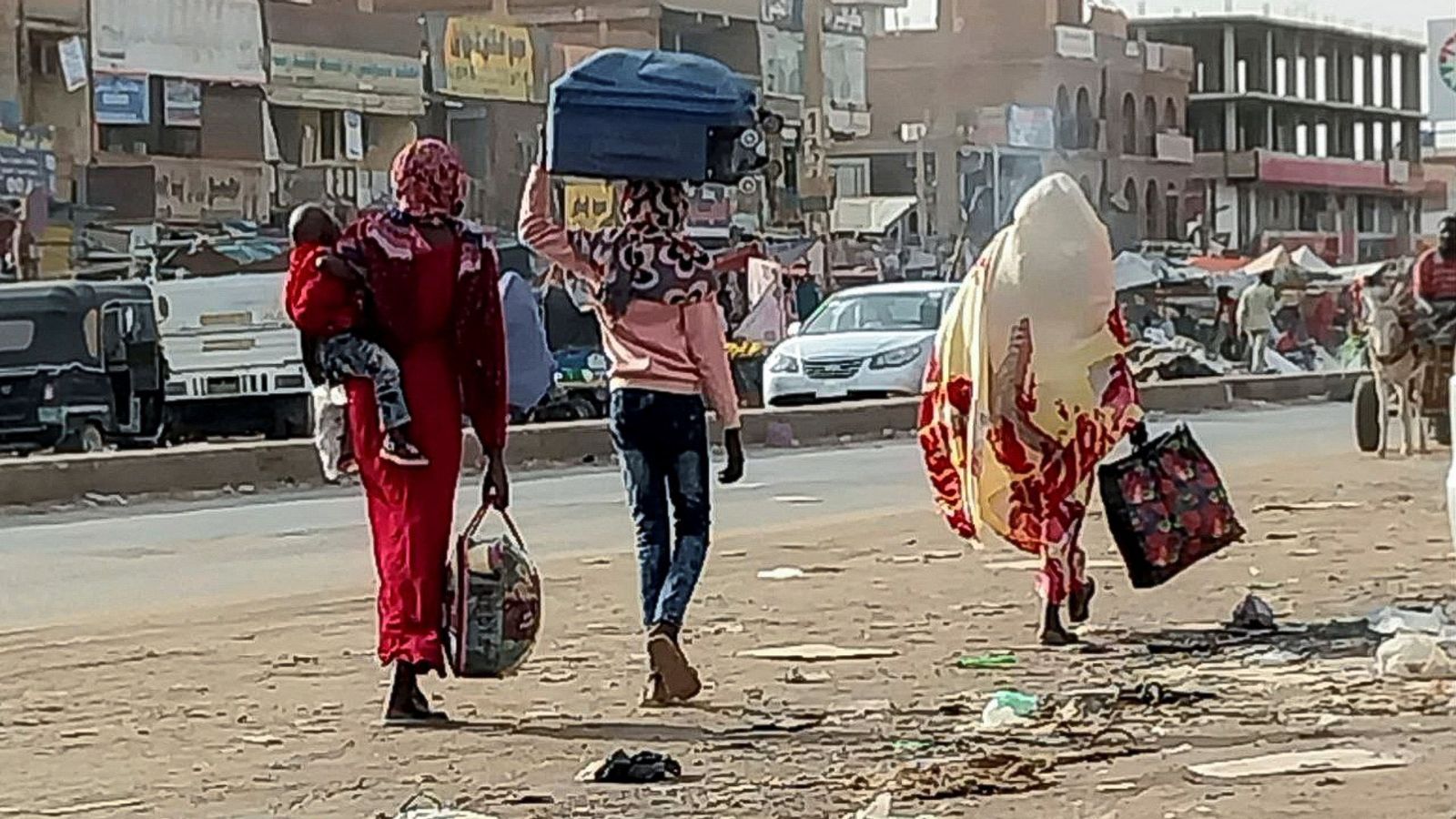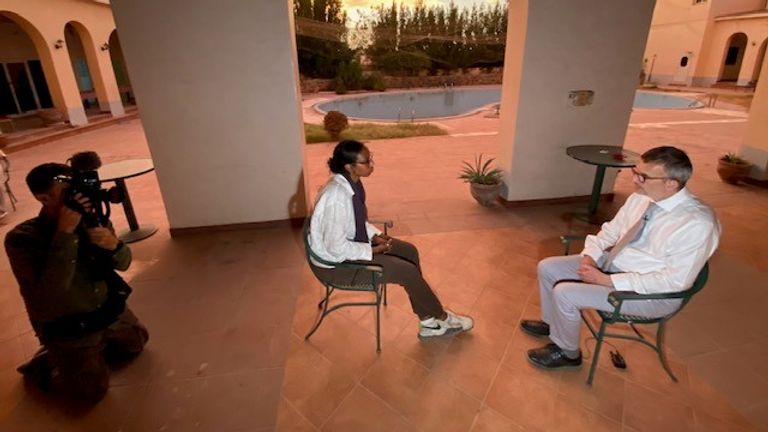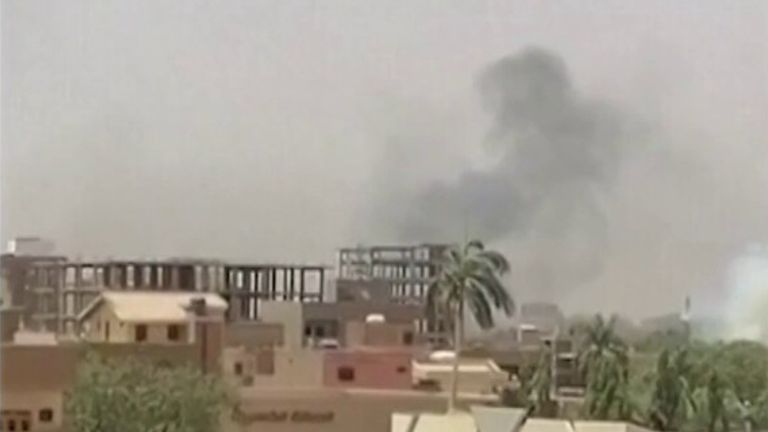The World Food Programme (WFP) will continue its operations in Sudan after they were suspended following the deaths of three of its team members in the conflict.
The UN organisation’s executive director Cindy McCain has said it is “rapidly resuming our programs to provide the life-saving assistance that many so desperately need right now”.
The WFP, which provides food assistance worldwide, said on 16 April that had it temporarily halted all operations in the country after three of its employees were killed in violence between the Sudanese army and the paramilitary Rapid Support Forces (RSF) a day earlier.
Meanwhile, British nationals trying to flee Sudan have until noon to reach an airport to be processed for an additional UK flight out of the conflict zone as rescue efforts shift to the east of the country.
Members of the military are working round the clock to assist UK citizens and others trying to escape the war-torn nation amid an uneasy ceasefire, the Foreign Office said.
Some 2,122 people have been evacuated on 23 flights from the Wadi Saeedna airfield near the capital Khartoum but more than 1,000 British passport holders may remain.
The UK government announced on Friday it was ceasing operations from the site on Saturday as an armistice between the country’s warring generals appeared to start breaking down.
UK citizens are now being advised to travel to Port Sudan where an extra flight will take off on Monday as the warring factions agreed to extend a fragile ceasefire for a further 72 hours.
In order to be processed for the journey, people are being urged to arrive at the city’s international airport before midday local time.
It is understood the flight from Port Sudan is exceptional and would repatriate a limited number of British nationals left in the country who wish to leave.
The armed forces and border force staff have been supporting the Foreign Office with the evacuation mission, with HMS Lancaster and the RAF redirected to the area.
The British government has agreed to include NHS doctors without UK passports on its final journeys amid criticism over the scope of its eligibility criteria for evacuation.
Flights had previously been limited to British nationals and their immediate family.
The planes have been touching down in Cyprus, which has activated a humanitarian rescue mechanism for evacuating third-country civilians, before arriving in the UK hours later.
The further evacuation of UK citizens comes as fighting could be heard in Khartoum early on Monday as the violence has entered its third week.
Sudan’s health ministry has said at least 528 people have been killed and 4,599 wounded since a long-simmering power struggle between the Sudanese army and the RSF erupted into conflict on 15 April.
The UN has reported a similar number of dead but believes the real toll is much higher.
Read more on the Sudan conflict:
UN envoy in Sudan defends delayed response
Husband reunited with pregnant wife in UK
Inside the new UK operations base in Sudan
Meanwhile, the United Nations has warned of a humanitarian “breaking point” as rival military forces accuse each other of violating the ceasefire which has now been extended.
The army and RSF worked together to topple Sudan’s civilian government in a coup in October 2021 but are now locked in a power struggle that has derailed an internationally backed transition to democracy.
The fighting between the two sides has pitched Sudan towards a civil war and sent tens of thousands of people fleeing into neighbouring countries.
It has also deepened the humanitarian crisis in Sudan, where a third of the people were dependent on some form of
humanitarian assistance before the fighting erupted, said Martin Griffiths, Under-Secretary-General for Humanitarian Affairs and Emergency Relief Coordinator at the United Nations.
In Khartoum, the army has been battling RSF forces entrenched in residential areas.
Fighting has so far seen the more agile RSF forces fan out across the city as the better equipped army tries to target them largely by using air strikes from drones and fighter jets.
Army leader General Abdel Fattah al-Burhan has said he would never sit down with RSF chief General Mohamed Hamdan Dagalo, also known as Hemedti, who in turn said he would talk only after the army ceased hostilities.



